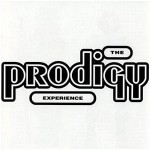
Hello fello Fanboys, got a great article written up by Chris Swindells from Virtual Festivals website.
Great read about Experience and so on. Thanks to Michael Botzaropoulos for the heads-up via Fanboy Contact.
The rave scene was a rabid epidemic, running unabated and wild in the summer of 1991. This free party outbreak spread with a ferocity of typhoid fever, stretching from satellite sites around the capital, infecting crowds of 50,000 or more in one night.
Back then The Prodigy were a innocent, fresh-faced four-piece, their foray into the crossover ‘rave n rock’ sound – inspired by what key man Liam Howlett saw as the Rage Against The Machine live model – were still not visible on the horizon.
Whether Howlett’s vision or the rave came first, his debut album with The Prodigy would set the fundamental building blocks for the band’s sound: breakbeat hardcore, with slabs of techno, dub-reggae and the then emerging sound of drum and bass, which became the blueprint for more than two decades of musical reverence and electric, ear-splitting live shows.
Even if a few criticised the band, labelling them ‘rave-lite’ in style, and tastemakers like Mixmag went so far as to level the scene’s demise at the door of the Essex outfit, the fact they are the only rave band to survive that era in electronic music comes at great testament to their continued relevance.
From the opening hyperbolic energy of ‘Jericho’, the tone and style of breakbeat rhythm was hard and anthemic on ‘Experience’. The samples came thick and fast, Lulu taking her turn on ‘Music Reach 1/2/3/4’ and pieces of N.W.A., James Brown and even Michael Fish interspersed in the mix that follows. Most notably Arthur Brown’s flailing proclamation, “I’m the god of hellfire, and I bring you fire!” was a raucous marker in the latter half of the album and surely a flaming forerunner to chart topping hit ‘Firestarter’. Listening back now it makes, like almost every Prodigy album, a unique, nostalgic window to that era in our musical heritage.
Howlett took centre stage on the record, his trademark bridges and big-beat breakdowns were altogether more polished than their rave band counterparts Altern 8 and N-Joi. The Prodigy had three top five hits in 1992, marking an arrival in charts that no one other rave act could come close to measuring up to.
Whether The Prodigy spread an infantilism that would ultimately be to blame for ‘Ebeneezer Goode’ making it to UK number one is irrelevant, and a cynical critque. With their follow up ‘Music For The Jilted Generation’ they would further reference and pay homage the scene further, waxing lyrical with a middle finger retort to the Criminal Justice and Public Order Act in the form of ‘Their Law’. The legislation declared the gathering of people to listen to a ‘succession of repetitive beats’ illegal and would nail the raving coffin shut.
Rave aficionado and fellow critic Simon Reynolds once said their early start was “all teenage rampage and sublimely vacant insurgency”, but his predication that rave-rock would be the new punk-rock turned good. The Prodigy’s gift for galvanising rave crowds would, inevitably, spill over into legal festival crowds. From fields of 50,000 ravers in Essex, to leas of 50,000 at V Festival, Essex, the band have never been more comfortable than when rolling with the excesses and dealing the hard opiate of the masses.
When The Prodigy arrive at Donington and Download Festival 2012 this June for their only UK festival show of the year, their timing could never be more potent. After 2009’s ‘Invaders Must Die’ set them back on the high critical and commercial road, this will be show with two decades of celebrated history and, more importantly, a big bright, burning future. Something their fellow headliners Black Sabbath and Metallica are still dreaming the sandman will deliver them.
